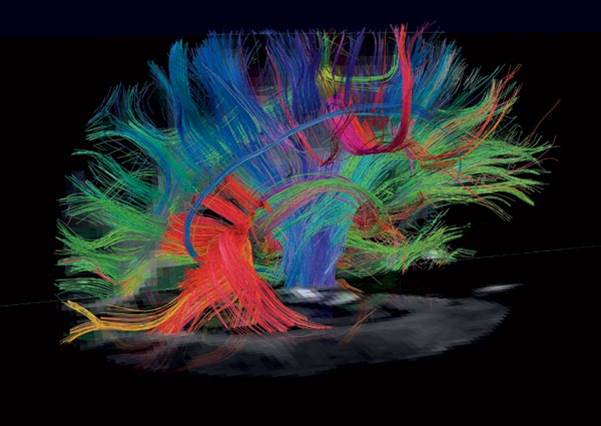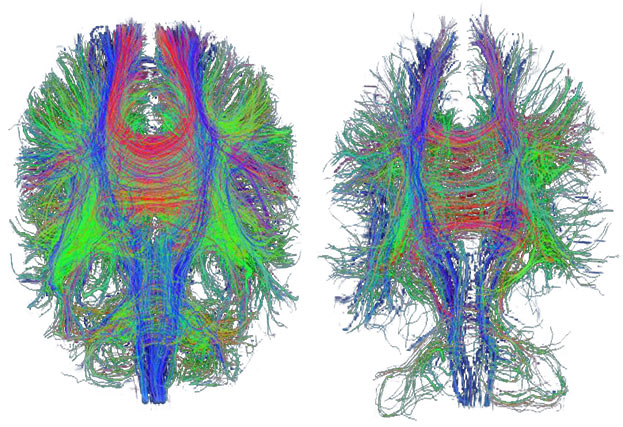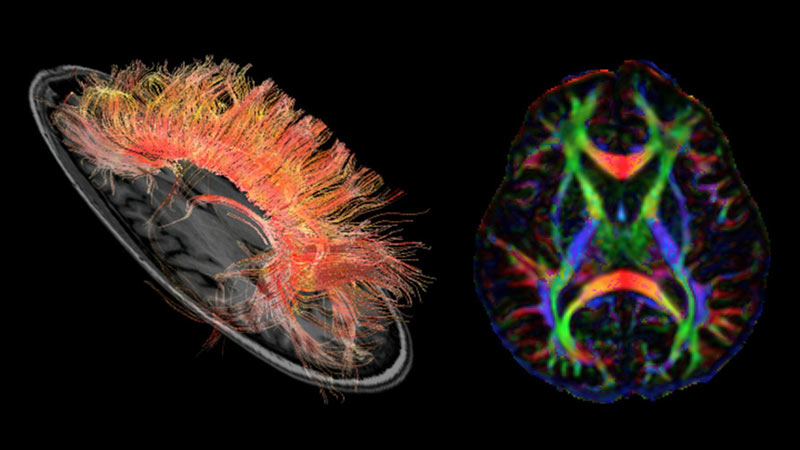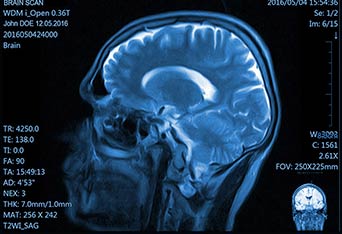Information for Providers
Medical imaging is all we do here at University Medical Imaging, which means your patients’ scans are always our top priority.
What is DTI?
DTI stands for diffusion tensor imaging, a type of medical resonance imaging (MRI) scan.
DTI captures the directional movement of water molecules along neural pathways. Post-processing creates detailed images of the nerves themselves, seen as a colorful, 3D tractography image. Individual regions can be isolated for better viewing.

DTI is the only imaging method that shows the actual nerve tract, instead of the fat surrounding nerve linings. DTI is useful for analysis of white matter, especially with detecting diffuse axonal injury and traumatic brain injury (TBI) pathologies not visible on standard MRI scans.
DTI has also been used in detecting age-related degeneration, cerebral ischemia, multiple sclerosis, epilepsy, metabolic disorders, and brain tumors.
With a brain tumor, not only does DTI provide additional tissue differentiation, it identifies neural tract disorganization for neurosurgical planning.


University Medical Imaging offers DTI as an optional, additional sequence performed in conjunction with a standard MRI brain scan (upon request). The sequence may result in an additional 4-5 minutes of scan time for the patient.
